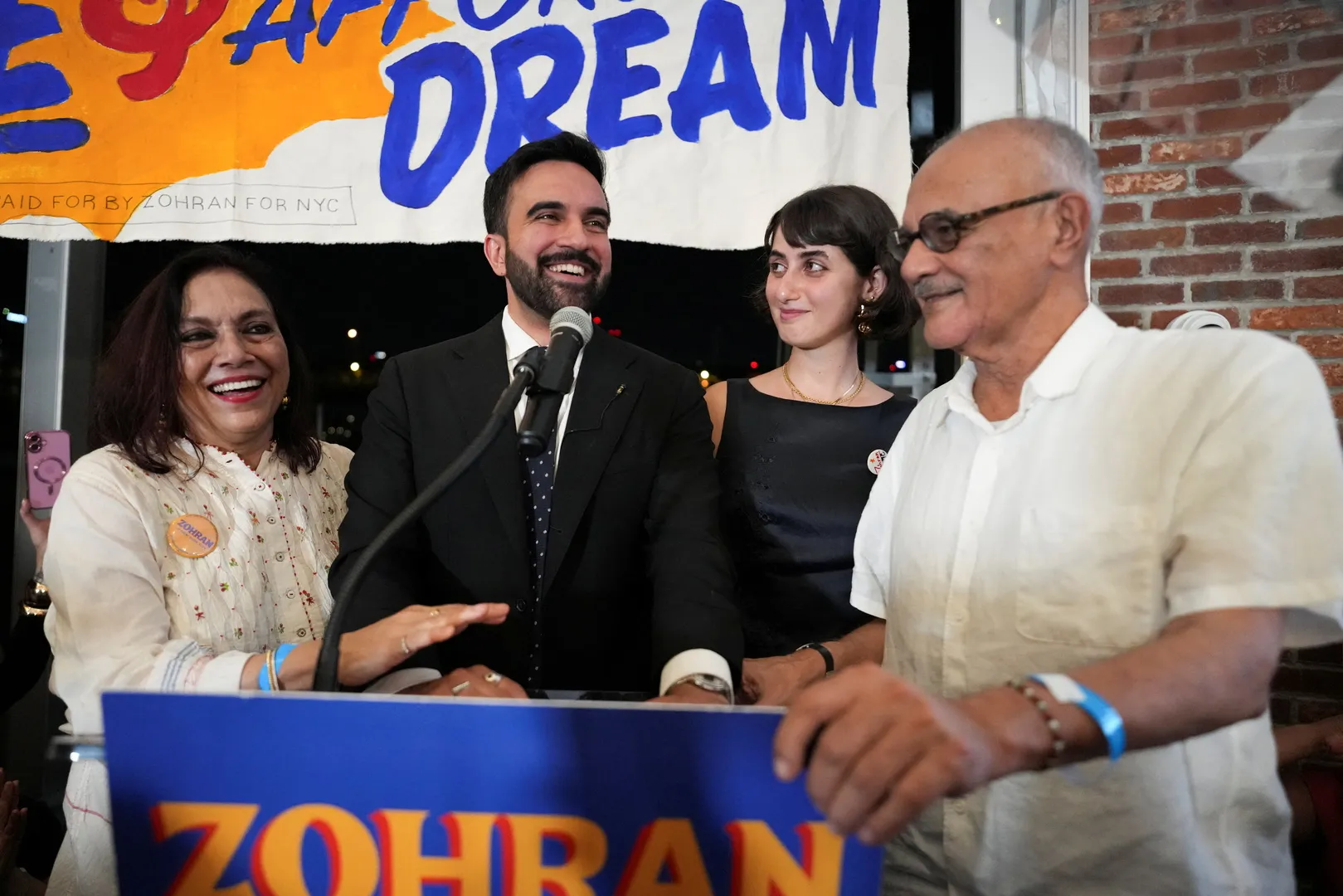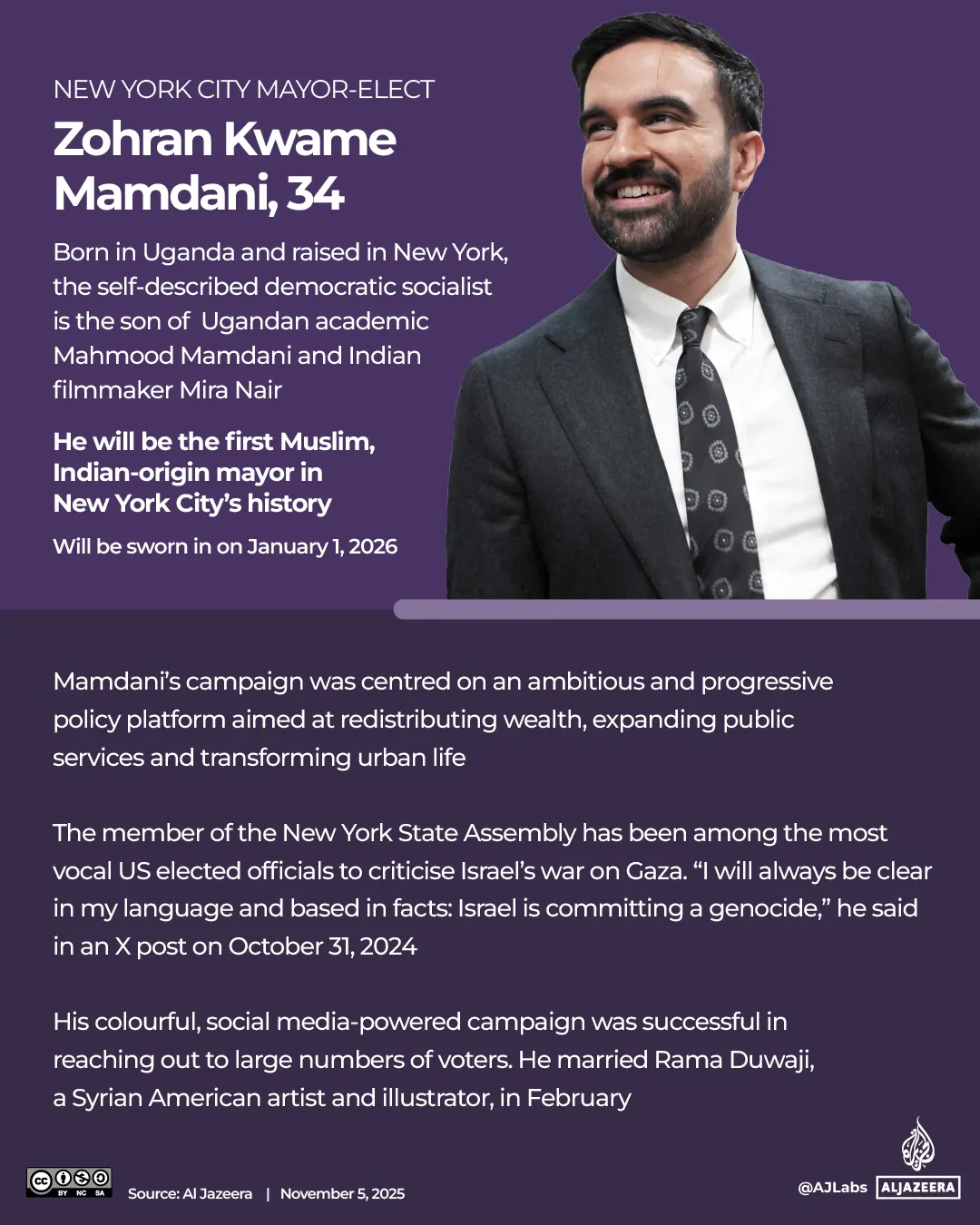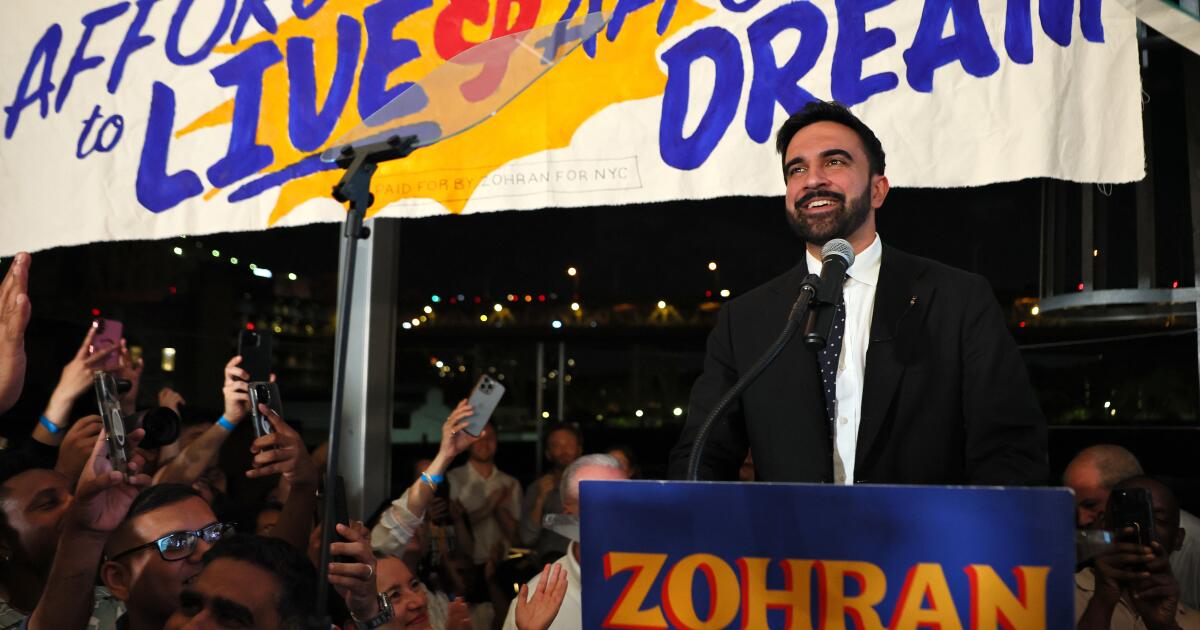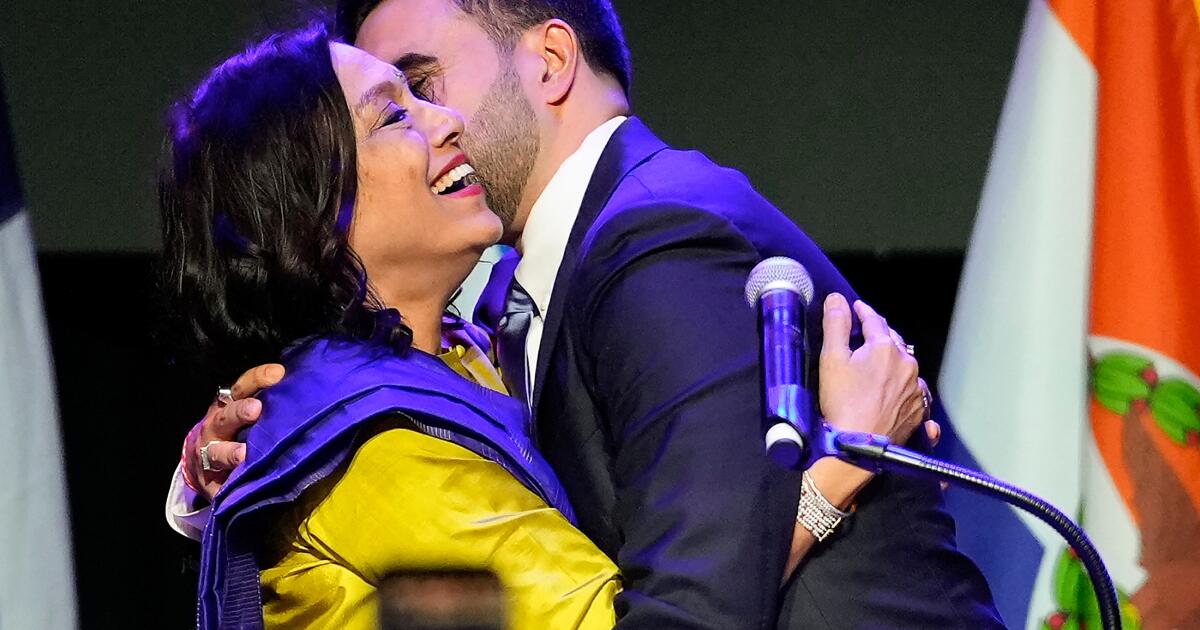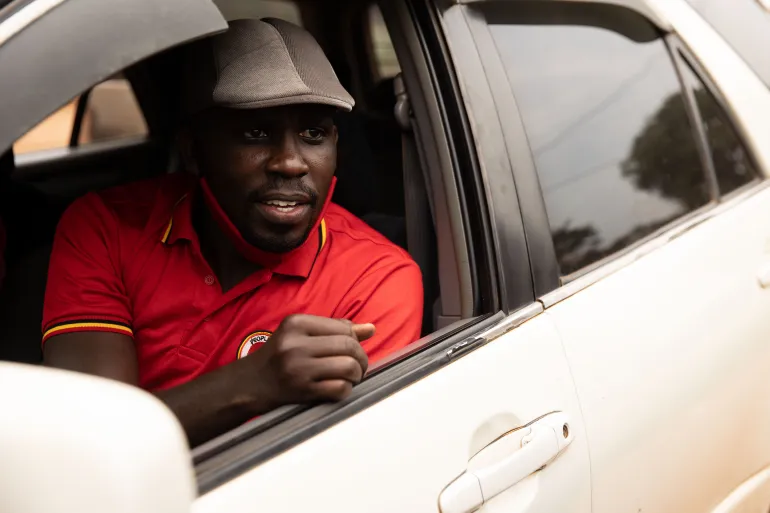You’re reading the L.A. Times Politics newsletter
Anita Chabria and David Lauter bring insights into legislation, politics and policy from California and beyond. In your inbox three times per week.
By continuing, you agree to our Terms of Service and our Privacy Policy.
SACRAMENTO — One takeaway from last week’s elections: The role model for California Gov. Gavin Newsom as he runs for president should be New York City Mayor-elect Zohran Mamdani.
Actually, Mamdani should be emulated not only by Newsom but by Democrats running for office anywhere.
Neither Newsom, of course, nor any candidate outside the most leftist burgs in America should wear the label “democratic socialist,” as Mamdani calls himself. That would frighten too many voters.
But what does appeal to voters — and always has in America — is a strong, positive message of hope. People like to think that a candidate understands their daily troubles and has a vision of how to make their lives better.
Mamdani is a 34-year-old Ugandan-born Muslim of Indian descent and a back-bench New York state assemblyman who the political experts would never figure to win a top-tier elective post such as New York mayor. But he has charisma, exudes authenticity and fills voters with hope.
OK, some of his campaign promises are undeliverable, even in liberal New York: free bus service, free child care and city-run grocery stores. But I suspect many voters didn’t take those pledges literally. It was the boldness and commitment to change for their betterment that drew people to him.
It’s a message framework that has been a winner throughout history.
Franklin D. Roosevelt promised “a new deal for the American people” and gave them hope with his radio fireside chats during the Great Depression.
John F. Kennedy offered a “new frontier.” Barack Obama chanted, “Yes we can” and ran on a slogan of “hope.”
They were all Democrats. But Republican founder Abraham Lincoln urged Americans to “vote yourself a farm and horses” and promised them homesteads on the western frontier.
Ronald Reagan declared: “Let’s make America great again.” Then Donald Trump stole the line and ruined it for any future candidate.
Newsom’s spiel has mostly been that Trump is lower than a worm. That has worked up until now. He has established himself as the Democrats’ most aggressive combatant against Trumpism — and the leader in early polling for the party’s 2028 presidential nomination.
Last week, his national party credentials were bolstered after orchestrating landslide voter approval of Proposition 50, aimed at countering Trump-coerced congressional redistricting in Texas and other red states.
Trump is desperate for the GOP to retain its narrow majority in the House of Representatives during next year’s midterm elections. But Proposition 50 gerrymandering could flip five California seats from Republican to Democrat — perhaps helping Democrats capture House control. Newsom becomes a party hero.
“He’s now a serious front-runner for the Democratic nomination,” says Bob Shrum, a former Democratic consultant who is director of the Center for the Political Future at USC.
Political strategist Mike Murphy, a former Republican turned independent, says “the Democratic presidential race in ‘25 has been won by Gavin Newsom. He made a bet [on Proposition 50] and it paid off.”
But Shrum, Murphy and other veteran politicos agree that Newsom at some point must change his script from predominantly anti-Trump to an appealing agenda for the future.
“He has to have an affordability message, for one,” Shrum says. “And he has to connect with voters. Voters just don’t go down a list of issues. FDR, JFK, Obama, they all were very connected with voters.”
Murphy: “He’s going to have to expand from fighting Trump to talking about his vision for helping the middle class. I’d say, ‘The era of Trump will soon be over. I have a way to bring back the American dream and here’s how I’m going to do it.’”
Easier said than done, especially if you’re the governor of troubled California.
“If it’s about a referendum on California, he has a vulnerability,” Murphy says. “He can’t run on ‘California is great.’”
Newsom consistently brags that California is a pacesetter for the nation. But lots of Americans want nothing to do with our pacesetting.
“You can’t have the highest unemployment, highest gas prices and the biggest homeless problem and tell Americans that everything in California is hunky-dory,” says Republican consultant Rob Stutzman. “Because voters don’t believe that.”
But Democratic consultant Bill Carrick, a South Carolina native, dismisses the effect of anti-California attitudes in Democratic presidential primaries.
“The notion that he can’t win in the South and border states, that’s nonsense,” Carrick says. “People who say that are Republicans. They don’t like Newsom or any other Democrat. People who vote in primaries are hardcore Democrats.”
But Carrick acknowledges that an anti-California bias could hurt Newsom in some states during a general election.
Here’s another takeaway from the elections: The Democratic Party is not in the toilet as far as it has been soul-searching since last November’s presidential election.
Last week, Democrats won everything from local commissioner to governor in much of the country. It confirmed my belief that the party’s chief problem in 2024 was a lousy presidential effort.
President Biden didn’t withdraw early enough for the party to hold primaries that would have allowed its nominee to build wide support. And Kamala Harris simply lacked appeal and didn’t inspire.
Democratic voter enthusiasm was contagious this time.
“There was one of the most exciting ground operations I’ve seen in a long time for 50,” says Democratic strategist Gale Kaufman. “Local party clubs, activists, union members all came together.”
Democrats can thank Trump.
“Voters really don’t trust Democrats but they‘re so angry with Trump it doesn’t matter,” says Dan Schnur, a political science instructor at USC and UC Berkeley.
Final takeaway: Trump has morphed into a Republican albatross.
What else you should be reading
The must-read: After outburst, Katie Porter’s support in the California governor’s race slips, new poll shows
The TK: Proposition 50 is a short-term victory against Trump. But at what cost?
The L.A. Times Special: Taking inspiration from Mamdani, democratic socialists look to expand their power in L.A.
Until next week,
George Skelton
—
Was this newsletter forwarded to you? Sign up here to get it in your inbox.
